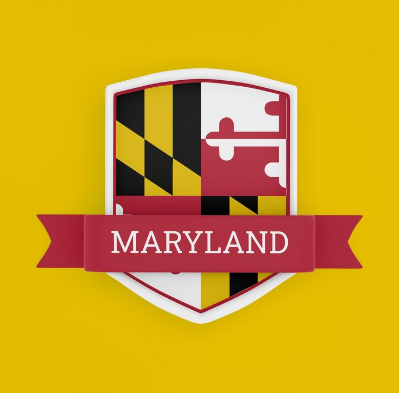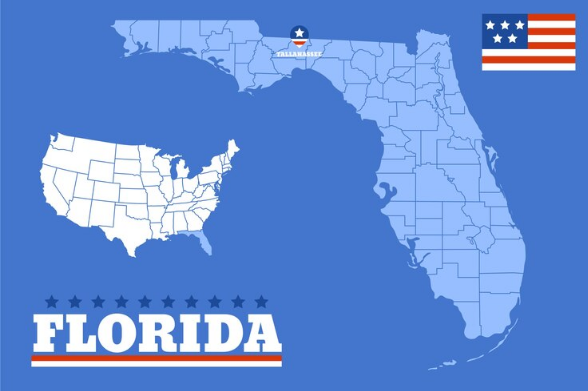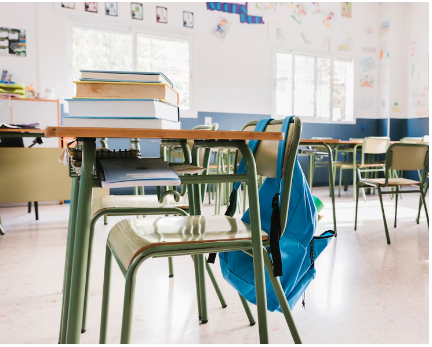Dyslexia Schools In Colorado: Everything You Need to Know

When evaluating dyslexia-friendly schools in Colorado, it's essential to apply a rigorous, multi-faceted approach to ensure that these institutions truly support students with dyslexia. Schools should be assessed based on their ability to offer specialized programs, trained staff, evidence-based teaching methods, and access to assistive technology.
In Colorado, schools that are considered dyslexia-friendly often excel in these areas, providing a supportive environment that fosters academic and personal growth for students with dyslexia.
By collaborating with experts, collecting data through surveys and observations, and validating findings with parents and educators, we can confidently recommend schools that genuinely meet the needs of dyslexic students.
Continuous monitoring and feedback ensure that these recommendations remain relevant and effective, offering Colorado families reliable guidance in choosing the right educational setting for their children.
This article will guide you through some of the top dyslexia-friendly schools in the area, providing you with the information you need to make an informed decision for your child's education.
The schools recommended have been carefully evaluated based on their specialized programs, the dedication of their staff, and their use of proven teaching methods.
We’ve spoken with parents, educators, and experts, and seen firsthand what works. The schools that made the list have shown a real commitment to helping students with dyslexia succeed, both academically and personally.
We want to make sure you have the information you need to choose a school where your child will feel supported, understood, and encouraged to reach their full potential.
What is the Percentage of Dyslexia Amongst Students In Colorado?
In Colorado, it's estimated that approximately 12% of K–12 students have dyslexia, translating to around 105,984 students based on the state's total student population. However, only about 35,425 students are identified and receiving special education services for dyslexia, leaving an estimated 70,559 students undiagnosed or without appropriate support.
The Colorado Department of Education (CDE) acknowledges that 15–20% of the population may be affected by dyslexia. Despite this, Colorado remains one of the few states without a mandate for universal dyslexia screening in early grades.
Some districts have taken proactive steps:
- Boulder Valley School District (BVSD): Implemented universal dyslexia screening for all kindergartners, identifying that 17% showed characteristics of dyslexia upon reassessment.
- Denver Public Schools: Initiated a pilot dyslexia screening program in select schools, aiming to expand the initiative.
Sources : (cpr.org) (bvsd.org) (chalkbeat.org, coloradocommunitymedia.com) (cokid.org)
Legislation and Policies for Dyslexia In Colorado
Colorado has implemented comprehensive legislation and policies to support students with dyslexia, focusing on early identification, evidence-based instruction, and structured literacy approaches. Below is are the key initiatives and resources:
Colorado Dyslexia Handbook
The Colorado Dyslexia Handbook serves as a vital resource for educators, families, and community members. It provides guidance on the identification, instruction, and accommodation of students with dyslexia.
The handbook aims to establish a common understanding of dyslexia across the state and offers evidence-based practices for supporting students. It is designed to be a living document, updated as new research and information become available. (cde.state.co.us, cde.state.co.us)
Colorado Reading to Ensure Academic Development (READ) Act
Enacted in 2012, the READ Act focuses on early literacy development for all students in kindergarten through third grade. It mandates the use of interim reading assessments to identify students with significant reading deficiencies and requires the implementation of individual reading improvement plans.
The act emphasizes the importance of evidence-based reading instruction and interventions. (cde.state.co.us, cde.state.co.us)
Dyslexia Pilot Program (House Bill 19-1134)
In 2019, the Colorado General Assembly established a dyslexia pilot program through House Bill 19-1134. The program's purpose is to identify effective practices for screening, identifying, and supporting students with dyslexia.
It includes the development of protocols and evaluation plans to inform statewide implementation. (cde.state.co.us)
School-Based Supports
Chapter 4 of the Colorado Dyslexia Handbook outlines school-based supports for students with dyslexia. It emphasizes the use of structured literacy approaches, accommodations, and assistive technology to support students' reading development. The chapter provides guidance on implementing effective instructional strategies within the school setting. (cde.state.co.us)
Community and Home-Based Support
The handbook also addresses the importance of community and home-based support for students with dyslexia. It offers resources for parents and caregivers to assist their children at home and highlights the role of community organizations in providing additional support. (cde.state.co.us)
For more detailed information and resources, please refer to the Colorado Department of Education's Dyslexia Resources page.(cde.state.co.us)
What Type of School Is Best For a Dyslexic?
The ideal schools are the ones where students can learn without all that unnecessary stress weighing them down.
Plus, these schools are all about recognizing the unique strengths that come with dyslexia, like creativity and thinking big-picture.
If your kid has a special interest, whether it's engineering, chess, music, or anything else under the sun, these schools give them the time and space to chase their passions.
Forget about just hunting for "reading programs" right away because, believe it or not, dyslexic students often thrive when their reading lessons align with their interests.
Now, here's the deal: if your child isn't loving school and isn't coming home all pumped up about learning, it might be time to explore other options. And guess what? That's perfectly okay – even awesome.
You can take your child out of a place that doesn't fit, even if you don't have the next school lined up right away. It's a powerful message to your child that you're in their corner and ready to support them.
Let them take a breather, catch up on some sleep, and in the meantime, you can figure out the next steps together.
Looking for learning difference/dyslexia friendly schools? Here are some must ask questions to help you pick the right dyslexia friendly school for your child.
Before attending your meeting, do a bit of background research. The more you know about dyslexia, teacher education programs and intervention programs, the more targeted you can be with your questions and the better you will understand the answers.
Support Services for Students with Dyslexia in Colorado
Colorado offers a comprehensive range of support services for students with dyslexia, encompassing state-led initiatives, district-level programs, and community-based resources.
Statewide Initiatives
Colorado Department of Education (CDE) Dyslexia Handbook
The CDE provides a comprehensive Dyslexia Handbook designed to assist schools and families in supporting students with literacy challenges, including dyslexia. This resource emphasizes collaborative efforts across general and special education contexts to meet students' needs. (cde.state.co.us)
Colorado Dyslexia Pilot Program
Initiated through House Bill 19-1134, this program piloted the use of READ Act assessment results and research-based protocols to identify markers of dyslexia in K–3 students. Participating schools received training and coaching to support early identification and intervention strategies. (cde.state.co.us)
Dyslexia Working Group
Established to analyze data and recommend strategies for dyslexia screening, educator training, and intervention structures, this group collaborates with various stakeholders to enhance support for students with dyslexia across the state. (cde.state.co.us)
District-Level Programs
Douglas County School District (DCSD)
DCSD offers a dedicated Dyslexia Support program, providing resources and guidance for families and educators. The district emphasizes early identification and intervention strategies to support students exhibiting characteristics of dyslexia.
Colorado Springs School District 11 (D11)
D11 has expanded its dyslexia therapy opportunities, offering programs like Take Flight at no cost to families. These services aim to provide comprehensive intervention for identified students during regular and extended school days. (d11.org)
Poudre School District (PSD)
PSD implements universal screening for K–3 students to identify reading deficiencies early. Students receive individualized, targeted instruction, and educators are trained in evidence-based practices to support structured literacy instruction. (psdschools.org)
Jeffco Public Schools
Recognizing the prevalence of dyslexia, Jeffco Public Schools provide resources and training for educators to support students with dyslexia. The district emphasizes collaboration between educators and the community to create cohesive educational programs. (jeffcopublicschools.org)
Community and Nonprofit Resources
DenCoKID (Denver County Kids Identified with Dyslexia)
DenCoKID focuses on building community awareness, providing support for families and educators, and advocating for improved learning outcomes for students with dyslexia in Denver. They offer resources, host events, and collaborate with local schools to promote early identification and intervention. (dencokid.com)
COKID (Colorado Kids Identified with Dyslexia)
COKID is a grassroots parent advocacy organization dedicated to supporting individuals with dyslexia across Colorado. They provide resources, support networks, and advocate for legislative changes to enhance dyslexia support statewide. (cokid.org)
Specialized Support Centers
Colorado Reading Center
Based in Englewood, the Colorado Reading Center offers personalized tutoring for children and adults with dyslexia. Their programs are grounded in the science of reading and include multisensory, structured phonics instruction tailored to individual needs. (coloradoreading.com)
Colorado Literacy & Learning Center
This center provides evaluations, tailored interventions, and strategies to address individual learning needs. Their services aim to empower individuals with dyslexia by building confidence and improving academic outcomes. (literacynow.org)
Best Dyslexia schools In Colorado
Colorado offers several reputable schools that specialize in supporting students with dyslexia. These institutions provide tailored programs, certified educators, and structured literacy approaches to help students thrive academically. Here are some of the top dyslexia-focused schools in Colorado:
1. Denver Academy – Denver, CO
With over 50 years of experience, Denver Academy serves students with diverse learning profiles, including dyslexia, ADHD, and executive functioning challenges. The school emphasizes individualized instruction, small class sizes (12–15 students), and a partnership model involving students, parents, and teachers. Their curriculum integrates technology and multisensory learning to cater to each student's unique needs.
2. Havern School – Littleton, CO
Havern School specializes in educating K–8 students with learning disabilities, including dyslexia. The school boasts a low student-to-teacher ratio (4:1) and integrates specialized instruction with therapies such as occupational, speech-language, and mental health support. Their educators are trained in the Orton-Gillingham method, ensuring evidence-based, multisensory instruction.
3. Vertical Skills Academy (VSA) – Jefferson County, CO
VSA is a nonprofit private school serving students in grades 2–8 with dyslexia and other language-based learning differences. The school offers full-day literacy immersion, individualized instruction using the Orton-Gillingham approach, and summer reading programs. VSA's mission is to empower students to become confident, thriving learners.
4. Orton Academy – Colorado Springs, CO
Orton Academy is a tuition-free public charter school serving students in grades 2–8 with dyslexia and similar reading difficulties. The school provides daily "Take Flight" reading therapy delivered by Certified Academic Language Therapists (CALTs). Orton Academy emphasizes personalized attention and a supportive environment tailored to each student's needs.
5. ALLIES (Academy for Literacy, Learning & Innovation Excellence) – Colorado Springs, CO
ALLIES is a tuition-free public school of choice serving students in grades 2–5 with language-based learning difficulties, including dyslexia. The school employs Certified Academic Language Therapists to deliver the "Take Flight" intervention program and offers accommodations for various learning challenges. ALLIES focuses on celebrating students' strengths while addressing their struggles.
6. Hillside School – Boulder, CO
Hillside School offers a half-day program focusing on individualized instruction in reading, written language, and math for students with learning differences, including dyslexia. This structure allows students to attend their neighborhood schools for the remainder of the day, providing a balanced educational experience.
7. Humanex Academy – Englewood, CO
Humanex Academy is an accredited private school serving students in grades 6–12 with neurodiverse profiles, including dyslexia, ADHD, and autism. The school offers a small, supportive environment with individualized instruction, built-in accommodations, and embedded social coaching to help students succeed academically and socially.
Also read Dyslexia Schools In Connecticut



